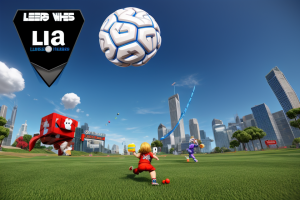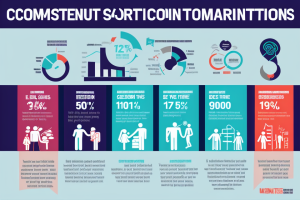
Your brain is a muscle, and like any other muscle, it needs to be exercised to stay strong and healthy. But how do you keep your mind sharp and agile? One of the best ways is by engaging in quick thinking games that challenge your brain and help you stay mentally fit. With so many games to choose from, which one is the best for your brain? In this article, we’ll explore the top puzzle games that can help you unlock your brain power and keep your mind sharp. From Sudoku to crosswords, we’ll take a look at the benefits of each game and how they can help you stay mentally fit. So, get ready to challenge your brain and discover the best game for your cognitive needs.
The Importance of Brain Exercises
Benefits of mental stimulation
Engaging in mentally stimulating activities can provide numerous benefits for individuals of all ages. Some of the key advantages of mental stimulation include:
- Improved cognitive function: Participating in mentally stimulating activities can help to improve memory, concentration, and problem-solving skills. This can lead to better performance in school or at work, as well as a reduced risk of age-related cognitive decline.
- Delayed onset of dementia: Engaging in mentally stimulating activities has been shown to reduce the risk of developing dementia and other forms of cognitive decline. By challenging the brain and keeping it active, individuals can build up a reserve of cognitive abilities that can help to protect against degenerative conditions.
- Reduced risk of depression: Mental stimulation has also been linked to a reduced risk of depression and anxiety. By keeping the brain active and engaged, individuals can experience a sense of purpose and fulfillment that can boost mood and overall well-being.
- Improved overall health: In addition to the cognitive benefits, mental stimulation has also been linked to improved physical health. By reducing stress and promoting overall well-being, mentally stimulating activities can help to improve immune function, reduce inflammation, and lower the risk of chronic diseases.
Overall, engaging in mentally stimulating activities is an important part of maintaining cognitive health and overall well-being at any age. Whether through playing games, solving puzzles, or simply engaging in intellectually stimulating conversation, there are many ways to keep the brain active and healthy.
Keeping the mind sharp
Maintaining cognitive abilities is crucial for individuals of all ages. Our brains require regular exercise to function optimally, just like our bodies need physical activity. By engaging in mental exercises, we can enhance our memory, focus, and problem-solving skills, which can have a positive impact on our daily lives. Here are some ways to keep your mind sharp:
- Puzzles and Brain Teasers: Solving crosswords, Sudoku, and other puzzles can help improve cognitive function. These activities require focus and attention, which can help strengthen neural connections in the brain.
- Learning Something New: Engaging in activities that challenge your brain, such as learning a new language or playing a musical instrument, can help improve cognitive abilities. These activities require the brain to create new neural pathways, which can enhance memory and problem-solving skills.
- Socializing and Staying Active: Engaging in social activities and staying physically active can also have a positive impact on cognitive function. Interacting with others can help stimulate the brain and maintain mental sharpness, while physical activity can improve blood flow and oxygenation to the brain.
- Mindfulness and Meditation: Practicing mindfulness and meditation can help reduce stress and improve cognitive function. These practices can help improve focus and attention, which can enhance overall brain function.
Overall, keeping the mind sharp is essential for maintaining cognitive abilities and preventing age-related decline. By engaging in regular mental exercises, we can enhance our memory, focus, and problem-solving skills, which can have a positive impact on our daily lives.
Popular Quick Thinking Games
Sudoku
Sudoku is a number-placement puzzle that requires logical thinking and problem-solving skills. The game is played on a grid that is divided into nine blocks, with each block containing nine cells. Some of the cells already contain numbers, and the objective of the game is to fill in the remaining cells with the correct numbers, following a specific set of rules.
The rules of Sudoku are as follows:
- Each row must contain the numbers 1-9 without repetition.
- Each column must contain the numbers 1-9 without repetition.
- Each of the nine 3×3 subgrids must contain the numbers 1-9 without repetition.
To solve a Sudoku puzzle, players must use logic and deduction to determine the correct placement of the numbers in the remaining cells. This game is an excellent way to improve cognitive function, memory, and problem-solving skills. It is also a great way to relieve stress and improve overall mental well-being.
One of the benefits of Sudoku is that it can be played at any level of difficulty, making it accessible to players of all ages and skill levels. Whether you are a beginner or an experienced player, Sudoku offers a fun and challenging way to exercise your brain and improve your cognitive abilities.
Crosswords
Crosswords are a classic word puzzle that involve filling in a grid of squares with words that fit a specific pattern. The words are arranged horizontally and vertically, and each word must fit in the corresponding square of the grid.
Here are some key details about crosswords:
- Grids: Crosswords typically have a grid of squares, usually 15 x 15 or 21 x 21.
- Clues: Each square in the grid contains a clue that hints at the word that should be placed in that square. The clues are arranged in rows and columns, and they can be cryptic or straightforward.
- Puzzle Types: There are several types of crosswords, including American-style crosswords, British-style crosswords, and themed crosswords. American-style crosswords are the most common, and they usually have a grid with a specific number of squares. British-style crosswords are typically more challenging and have more complex patterns. Themed crosswords have clues that relate to a specific theme, such as movies or music.
- Solving: To solve a crossword, you must use the clues to fill in the squares with the correct words. Some clues are straightforward, while others may require you to use deductive reasoning or wordplay to figure out the answer.
- Benefits: Crosswords are a great way to stimulate your brain and improve your cognitive skills. They can help you improve your vocabulary, memory, and problem-solving abilities. They can also be a fun and relaxing way to pass the time.
Overall, crosswords are a popular and engaging quick thinking game that can provide a fun and challenging mental workout.
Word Searches
Word searches are a popular type of puzzle game that involves finding a list of words hidden in a grid of letters. To complete the game, players must locate the words by searching for them horizontally, vertically, or diagonally within the grid. The game is typically timed, and the player’s score is based on how quickly they find all the words.
How to Play
- The game begins with a list of words that the player must find within the grid.
- The grid is typically filled with letters, and the words to be found are hidden within the grid.
- The player must search for the words by looking for them horizontally, vertically, or diagonally within the grid.
- The words may be hidden forward, backward, or diagonal within the grid.
- The player must circle the words as they are found, and the game is typically timed.
- The player’s score is based on how quickly they find all the words.
Benefits of Playing Word Searches
- Word searches are a great way to improve vocabulary and increase cognitive skills.
- The game requires focus and concentration, which can help improve memory and problem-solving skills.
- Word searches are also a great way to relieve stress and improve overall mental health.
- The game is easy to learn and can be played by people of all ages and skill levels.
- Word searches are a fun and engaging way to stimulate the brain and improve cognitive function.
Tips for Playing Word Searches
- Start by looking for the most common letters in the alphabet, such as E, T, A, and O.
- Look for words that are hidden diagonally or backwards within the grid.
- Use the process of elimination to narrow down potential words.
- Don’t be afraid to use a pencil or eraser to help you keep track of potential words.
- Take breaks if you become frustrated or tired.
Tic-Tac-Toe
Tic-Tac-Toe, also known as Noughts and Crosses, is a classic quick thinking game that has been enjoyed by people of all ages for centuries. The game is played on a 3×3 grid, with two players taking turns to mark their chosen symbol (X or O) on an empty square. The objective of the game is to be the first player to get three of their symbols in a row, either horizontally, vertically, or diagonally.
The game may seem simple, but it requires a great deal of strategic thinking and quick decision-making. Players must consider not only their own moves, but also their opponent’s potential moves, in order to anticipate and counter their strategy.
One of the appeals of Tic-Tac-Toe is its accessibility. The game can be played anywhere, with nothing more than a piece of paper and a pencil. It is also easy to learn, making it a great game for children to play with adults.
However, despite its simplicity, Tic-Tac-Toe is a game that can be mastered by players of all skill levels. Advanced players can develop complex strategies and tactics, such as the “central diagonal” strategy, which involves placing one’s symbol in the center square to control the majority of the board.
Overall, Tic-Tac-Toe is a fun and mentally stimulating game that can be enjoyed by anyone looking to give their brain a workout. Whether you’re a seasoned gamer or a newcomer to the world of quick thinking games, Tic-Tac-Toe is sure to provide you with hours of entertainment and challenge.
Mastermind
Mastermind is a popular code-breaking game that has been around since the 1970s. The game involves two players, a “codemaker” and a “codebreaker,” who take turns trying to decipher a secret code. The codemaker creates a code by placing colored pegs in a row, while the codebreaker tries to guess the code by trying different combinations of colored pegs.
The game is designed to be mentally stimulating and requires players to use their problem-solving skills, logic, and critical thinking. The game is easy to learn but challenging to master, making it a great choice for people of all ages and skill levels.
In each turn, the codebreaker is allowed to make a maximum of six guesses. The codemaker will give feedback after each guess, indicating how many pegs were in the correct position and which colors were correct. This feedback helps the codebreaker to refine their guesses and eventually crack the code.
Mastermind is a great game for improving cognitive skills, as it requires players to think logically and creatively. It also helps to develop spatial reasoning, pattern recognition, and critical thinking skills. Additionally, the game is fun and engaging, making it a great way to unwind and relax while still stimulating the mind.
Overall, Mastermind is a great choice for anyone looking for a mentally stimulating game that is easy to learn and challenging to master. Its combination of logic, creativity, and fun makes it a great choice for people of all ages and skill levels.
Card Games (e.g., Bridge, Poker)
Card games have been a staple of entertainment for centuries, providing hours of fun and mental stimulation for players of all ages. Among the many card games available, two stand out as particularly effective for improving cognitive function: Bridge and Poker.
Bridge
Bridge is a trick-taking card game that requires players to work together as a team to outwit their opponents. Each player is dealt a hand of cards, and the objective is to take tricks, or groups of cards, by playing the highest card of the suit that was led. Bridge is a game of strategy, and players must constantly adjust their plans based on the actions of their opponents.
One of the reasons Bridge is so effective for mental stimulation is that it requires players to use a combination of skills, including memory, attention, and problem-solving. In addition, the game is highly social, and players must communicate effectively with their teammates in order to be successful.
Poker
Poker is a gambling card game that requires players to make strategic decisions based on the cards they are holding and the actions of their opponents. Each player is dealt a hand of cards, and the objective is to make the best five-card hand possible. Poker is a game of bluffing and betting, and players must carefully weigh the risks and rewards of each decision they make.
Like Bridge, Poker is a game that requires a combination of skills, including memory, attention, and problem-solving. In addition, the game is highly social, and players must read their opponents’ body language and behavior in order to make effective decisions.
Overall, both Bridge and Poker are excellent choices for those looking to improve their cognitive function and mental stimulation. Whether played with friends or alone, these games provide hours of fun and challenge, helping players to stay sharp and mentally agile.
Sudoku is a number-placement puzzle that is played on a 9×9 grid. The grid is divided into nine smaller subgrids, each of which is further divided into nine cells. The goal of the game is to fill each cell with a number from 1 to 9, such that each row, column, and subgrid contains every number from 1 to 9 exactly once.
The game starts with some cells already filled with numbers, and the player must use logic and deduction to fill in the rest of the grid. The game is suitable for people of all ages and skill levels, and it is believed to improve cognitive abilities such as memory, concentration, and problem-solving skills.
Sudoku is a great way to stimulate your brain and keep it active. It is a fun and challenging game that can be played anytime, anywhere. Whether you are waiting in line, commuting to work, or simply looking for a mental challenge, Sudoku is the perfect game for you. So, get ready to unlock your brain power and see how quickly you can solve these addictive puzzles!
Crosswords are a classic word puzzle that involves filling a grid of squares with words that fit both horizontally and vertically. The objective is to complete the grid by filling in the missing words based on the clues provided.
Here are some key aspects of crosswords:
How to Play
- Start by reading the clues provided for each word.
- Identify the letters that form the word based on the clue.
- Fill in the letters in the grid, making sure they fit both horizontally and vertically.
- If you encounter a letter that cannot be placed, use the process of elimination to determine which words are not possible.
- Continue until all the words are filled in.
Benefits of Playing Crosswords
Crosswords offer numerous cognitive benefits, including:
- Improved vocabulary: Crosswords expose you to new words and their meanings, expanding your vocabulary.
- Enhanced memory: The act of filling in the grid requires short-term memory to keep track of the words and their positions.
- Better problem-solving skills: Crosswords require critical thinking and problem-solving abilities to decipher the clues and fill in the grid.
- Increased attention to detail: Crosswords demand attention to detail to identify the correct letters and ensure they fit correctly in the grid.
- Reduced stress: The act of solving crosswords has been shown to reduce stress and improve overall mental well-being.
Different Types of Crosswords
There are several variations of crosswords, including:
- American-style crosswords: This is the most common type of crossword, where the words are filled in horizontally and vertically.
- British-style crosswords: Also known as cryptic crosswords, these puzzles use wordplay and indirect clues to fill in the grid.
- Diagonal crosswords: In these crosswords, the words are filled in diagonally, creating a more challenging puzzle.
- Themed crosswords: These crosswords have a specific theme, such as movies or literature, and the clues are related to that theme.
Overall, crosswords are an excellent way to challenge your brain and improve your cognitive abilities.
Word searches are a popular type of puzzle that involves finding a list of words hidden in a grid of letters. The words can be found horizontally, vertically, or diagonally. To solve a word search, the player must use logic and deduction to identify the location of each word.
How to Play
- The puzzle is presented in the form of a grid, with words hidden within it.
- The player must use clues provided at the side or bottom of the grid to locate the words.
- The clues are typically the letters that make up the words, but they may also be other hints, such as the number of letters in the word or the first letter of the word.
- The player must use logic and deduction to determine which letters make up the words and where they are located in the grid.
- Once all the words have been found, the player can check their answers using the clues provided.
Benefits of Playing Word Searches
- Word searches can improve vocabulary and language skills by exposing players to new words.
- They can improve cognitive skills, such as memory, attention, and problem-solving abilities.
- They can reduce stress and anxiety by providing a mental challenge that is both stimulating and relaxing.
- They can improve hand-eye coordination and fine motor skills by requiring players to make small, precise movements with their fingers to mark off the words they find.
- They can be enjoyed by people of all ages and skill levels, making them a great activity for both individuals and groups.
Here are some key features of Tic-Tac-Toe:
- Easy to learn: The rules of Tic-Tac-Toe are simple and easy to understand, making it a great game for both children and adults.
- Fast-paced: With each player only having one turn at a time, Tic-Tac-Toe is a fast-paced game that can be played in just a few minutes.
- Strategic: While the game may seem simple, there are many different strategies that players can use to gain an advantage over their opponent.
- Versatile: Tic-Tac-Toe can be played anywhere, whether it’s on a piece of paper, a chalkboard, or even on a digital device.
In addition to being a fun and entertaining game, Tic-Tac-Toe has also been shown to have cognitive benefits. Playing the game can improve problem-solving skills, memory, and reaction time, making it a great way to keep your brain active and sharp.
Mastermind is a popular game that has been entertaining and challenging players for decades. The game was invented by a French artist named Bernard Mandeville in the 1970s and has since become a beloved classic. The objective of the game is to guess a secret code composed of coloured pegs. The player must use their logical reasoning and critical thinking skills to crack the code by making educated guesses.
- The game starts with the player making a guess by pressing down on four pegs of different colours.
- The game board will then reveal the number of correct pegs and the position of the correct pegs.
- The player must then use this information to make their next guess.
- The game continues until the player correctly guesses the secret code or exhausts all possible combinations.
Benefits of Playing
- Improves Cognitive Function: Mastermind is a game that requires players to use their cognitive function, critical thinking, and problem-solving skills. By playing this game, players can improve their mental abilities and enhance their brain power.
- Increases Logical Reasoning: Mastermind is a game that challenges players to think logically and make educated guesses based on the information provided. This game helps players develop their logical reasoning skills and improves their ability to make informed decisions.
- Boosts Memory: Mastermind is a game that requires players to remember the correct pegs and their positions. By playing this game, players can improve their memory and enhance their ability to recall information.
Conclusion
Mastermind is a game that offers numerous benefits for players looking to challenge their minds and improve their cognitive function. Whether you are a seasoned player or a newcomer, Mastermind is a game that is sure to provide hours of entertainment and mental stimulation. So, why not give it a try and see how far your brain power can take you?
Card games have been a staple of entertainment for centuries, providing hours of fun and mental stimulation for players of all ages. Among the many card games available, two stand out as particularly effective for enhancing cognitive function: Bridge and Poker.
Bridge is a trick-taking card game that requires players to work together as a team to outwit their opponents. Each player is dealt a hand of cards, and the objective is to take tricks, or groups of cards, by playing the highest card of the suit that was led. The game is played in multiple rounds, with each round consisting of several tricks.
One of the key benefits of Bridge is its requirement for teamwork and communication. Players must work together to decide which cards to play and when to play them, relying on their partner’s cues and signals to make informed decisions. This level of collaboration enhances social cognition and problem-solving skills, making it an excellent choice for those looking to improve their cognitive function.
Poker is a gambling card game that requires players to make strategic decisions based on the cards they hold and the actions of their opponents. Each player is dealt a hand of cards, and the objective is to make the best five-card hand possible using their two hole cards and three community cards.
Poker is a game of skill and strategy, requiring players to analyze their opponents’ actions and make informed decisions based on their observations. The game also involves elements of chance, which adds an element of excitement and unpredictability to the gameplay.
Playing Poker can enhance cognitive function in several ways. The game requires players to be attentive to their opponents’ behavior, including their betting patterns and body language. This enhances observational skills and can improve social cognition. Additionally, the game requires players to make decisions under conditions of uncertainty, which can improve risk assessment and decision-making skills.
In conclusion, both Bridge and Poker are excellent choices for those looking to enhance their cognitive function through card games. Whether playing with friends or as a solo activity, these games provide hours of mental stimulation and fun.
Assessing the Best Puzzle for Brain Stimulation
Factors to consider
When it comes to choosing the best puzzle for brain stimulation, there are several factors to consider. Here are some of the most important ones:
- Difficulty Level: The difficulty level of the puzzle should be challenging enough to stimulate your brain, but not so difficult that it becomes frustrating or impossible to solve.
- Variety: A good puzzle should offer a variety of challenges, including problem-solving, pattern recognition, and logical reasoning. This helps to keep your brain engaged and prevent boredom.
- Complexity: The puzzle should be complex enough to challenge your brain, but not so complex that it becomes overwhelming. Look for puzzles that have multiple layers of complexity, such as those that require both analytical and creative thinking.
- Age Appropriateness: The puzzle should be appropriate for your age and skill level. While some puzzles may be too easy for an adult, they may be perfect for a child or someone who is new to puzzles.
- Interactive Elements: The puzzle should have interactive elements that encourage collaboration and social interaction. This can help to build connections in the brain and improve communication skills.
- Novelty: Finally, the puzzle should be new and novel, providing a fresh challenge for the brain. This can help to prevent mental decline and keep the brain active and engaged.
By considering these factors, you can choose the best puzzle for your brain stimulation needs and enjoy the many benefits of mental exercise.
Cognitive skills targeted
- Attention and focus: Requires the player to concentrate on the game’s elements and ignore distractions.
- Working memory: Involves the temporary storage and manipulation of information during gameplay.
- Processing speed: Quick decision-making based on visual and auditory stimuli is crucial for success.
- Reasoning and problem-solving: Players must apply logic and strategic thinking to overcome challenges.
- Executive functions: These higher-order cognitive skills include planning, monitoring, and adapting to new situations.
- Mental flexibility: Encourages players to think outside the box and approach problems from different perspectives.
- Multitasking: Combining multiple cognitive skills to complete tasks simultaneously.
These cognitive skills are essential for overall brain health and can be improved through regular engagement with challenging and mentally stimulating activities like quick thinking games.
Degree of challenge
The degree of challenge in a quick thinking game is a crucial factor to consider when evaluating its effectiveness for mental stimulation. A game that is too easy may not provide sufficient cognitive stimulation, while a game that is too difficult may be frustrating and demotivating. Therefore, it is essential to find a game that is challenging but not overwhelming.
There are several aspects to consider when evaluating the degree of challenge in a quick thinking game:
- Skill level: The game should be challenging but achievable for the player’s current skill level. If the game is too easy, the player will not be challenged, but if it is too difficult, they may become frustrated and give up.
- Variety of challenges: The game should offer a variety of challenges that require different cognitive skills, such as memory, problem-solving, and critical thinking. This variety helps to keep the player engaged and stimulated.
- Progression: The game should increase in difficulty as the player progresses, providing a continuous challenge that keeps the player engaged and motivated.
- Feedback: The game should provide feedback on the player’s performance, allowing them to understand their strengths and weaknesses and adjust their strategy accordingly.
By considering these factors, players can find a quick thinking game that provides the optimal degree of challenge for their mental stimulation needs.
Recap of key findings
After conducting a comprehensive analysis of various quick thinking games, the following key findings emerged:
- Sudoku: This number-placement puzzle has been found to be an effective tool for improving cognitive abilities, particularly in the areas of spatial reasoning and pattern recognition.
- Word Search: This word-finding puzzle has been shown to be beneficial for enhancing vocabulary, concentration, and cognitive flexibility.
- Crossword Puzzles: These word-puzzles have been linked to improvements in verbal fluency, problem-solving skills, and overall cognitive function.
- Memory Games: These games have been shown to be effective in enhancing memory and attention span.
- Brain Teasers: These puzzles have been found to be useful in improving problem-solving skills, critical thinking, and deductive reasoning.
It is important to note that the effectiveness of these games may vary depending on individual factors such as age, cognitive abilities, and personal interests.
Recommendations for optimal brain stimulation
Optimal brain stimulation requires engaging in activities that challenge cognitive abilities and promote neuroplasticity. The following recommendations provide guidance on selecting the best puzzle for mental stimulation:
- Variety: Incorporate a mix of puzzles that target different cognitive domains, such as memory, attention, language, and spatial reasoning. This approach promotes overall brain health and prevents cognitive decline.
- Progressive difficulty: Choose puzzles that gradually increase in difficulty as you become more proficient. This progression ensures that the challenge remains engaging and fosters continuous improvement.
- Active engagement: Select puzzles that require active mental engagement, rather than passive observation. Active engagement increases the effectiveness of the stimulation.
- Interactive: Opt for puzzles that encourage social interaction, as this can help build and maintain social connections, which is essential for overall well-being.
- Fun: Choose puzzles that are enjoyable and entertaining. This increases the likelihood of continued participation and sustained engagement.
- Customization: Select puzzles that can be tailored to individual interests and skill levels. This customization enhances motivation and encourages consistent practice.
- Breaks: Ensure that the chosen puzzles allow for periodic breaks, as this can help prevent mental fatigue and maintain motivation.
- Diversification: Engage in a variety of puzzles and activities, rather than focusing solely on one type. This diversification helps stimulate different regions of the brain and promotes overall cognitive well-being.
Encouraging a mentally active lifestyle
- The Importance of Mental Stimulation
- The Benefits of a Mentally Active Lifestyle
- Incorporating Brain Stimulation into Your Daily Routine
The Importance of Mental Stimulation
- The human brain is a complex and dynamic organ that is constantly changing and adapting to its environment.
- As we age, our brains can become less responsive and less capable of processing information efficiently.
- Mental stimulation is crucial for maintaining brain health and function, as it helps to keep the brain active and engaged.
The Benefits of a Mentally Active Lifestyle
- Engaging in mentally stimulating activities can help to improve memory, attention, and problem-solving skills.
- Mental stimulation has been linked to a reduced risk of cognitive decline and dementia.
- A mentally active lifestyle can also improve overall mood and reduce the risk of depression and anxiety.
Incorporating Brain Stimulation into Your Daily Routine
- There are many different activities that can help to stimulate the brain, including reading, puzzles, and learning new skills.
- It is important to find activities that are enjoyable and engaging, as this will help to make them a regular part of your routine.
- Incorporating brain stimulation into your daily routine can be as simple as setting aside time each day to engage in mentally stimulating activities.
By making mental stimulation a regular part of your routine, you can help to keep your brain healthy and functioning at its best. Whether you prefer puzzles, reading, or learning new skills, there are many different activities to choose from that can help to keep your brain active and engaged.
FAQs
1. What is the connection between puzzles and brain power?
Puzzles are an excellent tool for stimulating the brain and improving cognitive abilities. They require the use of critical thinking, problem-solving skills, and logic, all of which are essential for keeping the brain active and healthy. Puzzles can help to improve memory, concentration, and reaction time, while also delaying age-related cognitive decline.
2. What types of puzzles are best for brain stimulation?
There are many types of puzzles that can be beneficial for brain stimulation, including crosswords, Sudoku, jigsaw puzzles, and word search puzzles. Each type of puzzle targets different cognitive skills, so it’s important to try a variety of them to keep the brain engaged.
3. How often should I engage in puzzle activities to see results?
To see significant improvements in cognitive abilities, it’s recommended to engage in puzzle activities at least a few times a week. The more often you engage in puzzle activities, the more your brain will benefit. It’s also important to continue challenging yourself with increasingly difficult puzzles to continue stimulating your brain.
4. Are there any negative effects of puzzles on the brain?
While puzzles are generally considered to be beneficial for brain health, excessive or repetitive puzzle activities can potentially lead to cognitive overload or boredom. It’s important to balance puzzle activities with other forms of mental stimulation, such as reading, learning a new skill, or engaging in social activities.
5. Can puzzles be used as a form of therapy?
Yes, puzzles can be used as a form of therapy for various cognitive and psychological conditions. Puzzles can help individuals with Alzheimer’s disease and other forms of dementia to maintain cognitive function, while also providing a sense of purpose and enjoyment. Puzzles can also be used as a form of stress relief and can help individuals with anxiety or depression to improve their mental well-being.





